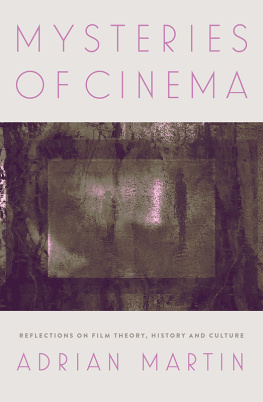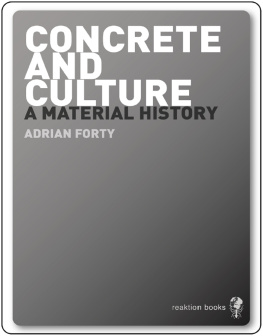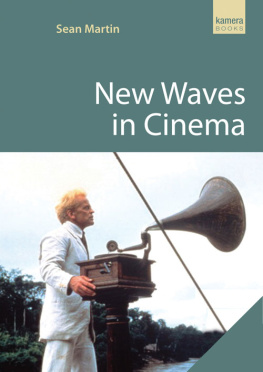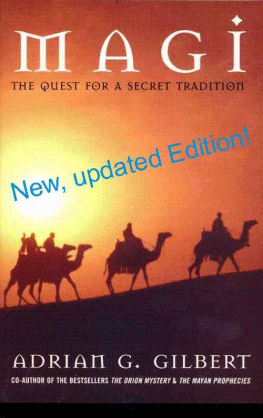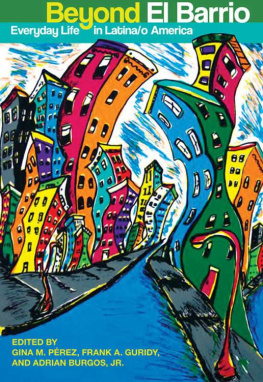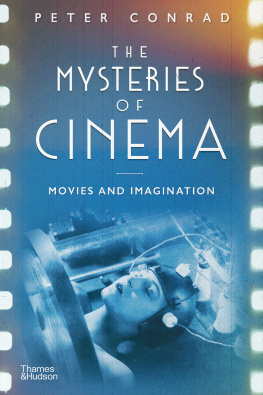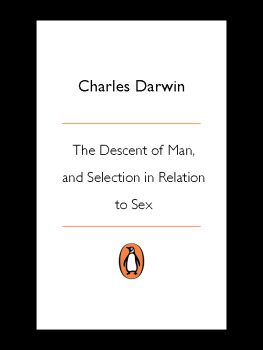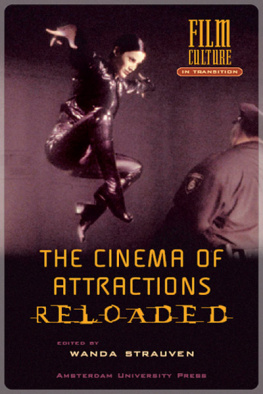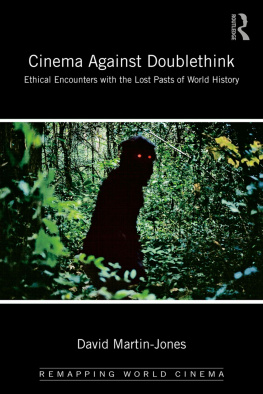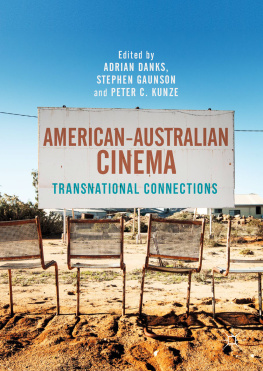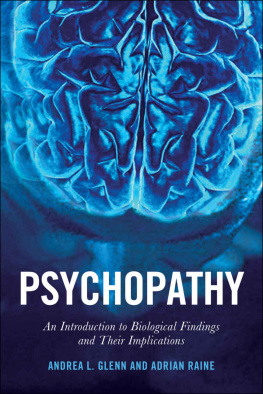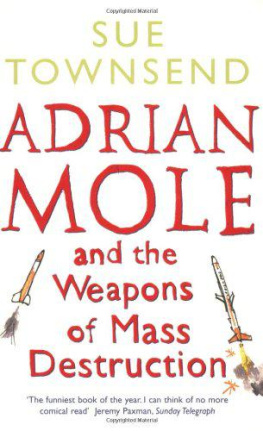Martin Adrian - Mysteries of Cinema
Here you can read online Martin Adrian - Mysteries of Cinema full text of the book (entire story) in english for free. Download pdf and epub, get meaning, cover and reviews about this ebook. publisher: UWA Publishing, genre: Romance novel. Description of the work, (preface) as well as reviews are available. Best literature library LitArk.com created for fans of good reading and offers a wide selection of genres:
Romance novel
Science fiction
Adventure
Detective
Science
History
Home and family
Prose
Art
Politics
Computer
Non-fiction
Religion
Business
Children
Humor
Choose a favorite category and find really read worthwhile books. Enjoy immersion in the world of imagination, feel the emotions of the characters or learn something new for yourself, make an fascinating discovery.
- Book:Mysteries of Cinema
- Author:
- Publisher:UWA Publishing
- Genre:
- Rating:3 / 5
- Favourites:Add to favourites
- Your mark:
- 60
- 1
- 2
- 3
- 4
- 5
Mysteries of Cinema: summary, description and annotation
We offer to read an annotation, description, summary or preface (depends on what the author of the book "Mysteries of Cinema" wrote himself). If you haven't found the necessary information about the book — write in the comments, we will try to find it.
Mysteries of Cinema — read online for free the complete book (whole text) full work
Below is the text of the book, divided by pages. System saving the place of the last page read, allows you to conveniently read the book "Mysteries of Cinema" online for free, without having to search again every time where you left off. Put a bookmark, and you can go to the page where you finished reading at any time.
Font size:
Interval:
Bookmark:
MYSTERIES OF CINEMA
Adrian Martin is a film and arts critic. He is Adjunct Associate Professor in Film Culture and Theory at Monash University (Australia) and teacher at Elas Querejeta Zine-Eskola (Spain). Author of eight books, his work has appeared in many magazines, journals and newspapers around the world, and has been translated into over twenty languages.
MYSTERIES OF CINEMA
REFLECTIONS ON FILM THEORY, HISTORY AND CULTURE
ADRIAN MARTIN

First published in 2018 by Amsterdam University Press
This edition published in 2020 by
UWA Publishing
Crawley, Western Australia 6009
www.uwap.uwa.edu.au
UWAP is an imprint of UWA Publishing, a division of The University of Western Australia.

This book is copyright. Apart from any fair dealing for the purpose of private study, research, criticism or review, as permitted under the Copyright Act 1968, no part may be reproduced by any process without written permission. Enquiries should be made to the publisher.
Copyright Adrian Martin 2020
The moral right of the author has been asserted.
ISBN: 978-1-76080-129-8

Cover design by Peter Long
Cover image: Within the light by Vicky Mousoulis, 2017
Typeset by J&M Typesetting
Printed by McPhersons Printing Group

para Cristina, mi angelita
CONTENTS
I dont believe in the influence of one form of expression on another: painting on literature, sculpture or architecture on music, etc.
There is simply an aptitude for one form or other, and the predominance of a certain orientation.
So dont ask me about the influence of cinema on writing. Rather, ask me about the influence of cinema on behaviour: thats real. Modern love directly flows from cinema, and by cinema I mean not only the spectacle on screen, but also the theatre itself, the artificial night.
Robert Desnos,
response to an inquiry on Literature, Modern Thought and Cinema, Les Cahiers du mois, no. 16/17 (1925), reprinted in
Desnos, Les rayons et les ombres
(Paris: ditions Gallimard, 1992), p. 77
Part I
Letters of Introduction
Retying the Threads
It is an alternative life, freed from the tyranny of that old devil consequence, from the limitation of having only one life to live. Ones favourite films are ones unlived lives, ones hopes, fears, libido. They constitute a magic mirror, their shadowy forms are woven from ones shadow selves, ones limbo loves.
Raymond Durgnat, 1967
This book covers 34 years of a writing life, so far. (I plan for a Volume 2 in 2050.) It is not a collected essays that contains all my work to date (far from it), and nor is it a selected essays that tries to represent all the different areas and modes in which I practise (ditto). It is not quite a book of film criticism, because it lacks articles on specific films or directors careers; and nor is it a book of conventional academic scholarship, since I have worked within the tertiary education system only for a couple of relatively short periods in my life, and none of the essays contained here derive from university-approved publications.
So, what kind of assemblage is this, exactly? It is a book of general, transversal reflections clusters of associations, each time around a different centre or theme. It is, as I would like to describe it, a book of threads. There are threads that accompany all of us as we make our way through time historical time as well as personal, subjective, lived time. This book is a record of how I have tried to constantly tie or weave two particular threads together: to put this in the simplest way, the thread of films (and other creative works) I have experienced, with the thread of written texts I have read, heard, noted and upon which Ive reflected. When bound together, collectively, these threads form what we (sometimes airily) refer to as a film culture. Maybe that threading (things weve seen plus things weve read) sounds like a minimal definition of what most of us in the field of studying film (however we mark out that field) do. But I mean it in a more particular way.
Most of the time, I have not been explicitly asked by my editors or publishers to reflect on whatever point I have reached in my personal threading-together of films and ideas; I am rarely obliged to speculate on the state of a film culture per se. The commission is usually more straightforward: review this or that movie trend, group art show or timely conjunction of books released at the same moment. But the strange destiny of a freelance writers life is to walk a particular type of tightrope: the passions you pursue in your head which you may frequently draw up imaginary plans for, in the form of one phantom book after another that you will never have time to write will inevitably force their way, whether you consciously want them to or not, into almost anything you happen to be materially working on. And, at any given pit stop of an unruly career, that turns out to be the writing you have actually achieved, the writing that has managed to come into existence and express itself. Writing is what happens (to tweak a folk expression) while making other plans? Something like that. Raymond Bellour puts it, more grandly, like this, discussing the journalistic output of his friend Serge Daney as gathered in the 1986 book Cin journal:
Daney knew, and this is the most astonishing thing, how to constantly maintain the whole of his thought within the contingency of the journalistic event (a film, whether old or new, TV show, shoot, obituary, anniversary celebration). Even better, he understood that this contingency became his pretext, and (for a while at least) his very form spurring him to live and to write. And we feel that. Each of his texts reconciles, in the best
And Bellour concludes his remarks by zooming out from this generative struggle of the daily and the weighty: From the tension, as always, emotion is born.
One will see in the following pages, under specified rubrics (and also dancing between them), a few phantom books never written per se by me, yet somehow elaborated, and constantly updated, along the Ariadnean thread of years. These rubrics are an attempt to capture or corral some of my longstanding obsessions, waxing and waning over time. Putting together any book, as a friend once remarked to me, is all a matter of retying the threads, gathering up the lines of the past.
Like many people, I have often wondered what to call myself, how to describe myself in public. Critic? Scholar? Independent researcher? Freelance intellectual? I felt great relief on the day which finally arrived somewhere in my 40s when I suddenly thought that I should simply call myself a writer. Writing (about film, primarily) has been the most consistent thread of my life. But, alongside the Romantic connotations of this notion, which I fully embrace in the sense that I have tried to develop, in writing, a voice, a particular style, a persona and a form of expression there is also a material, even industrial side to such a designation. As a freelance writer for long periods, I have tried to keep myself open to any opportunity that has come (and hopefully may continue to come) my way. I have frequently written about art as well as TV, books, music and culture (popular and otherwise) in general. The result of all this is that my writing-persona has been dispersed across multiple sites print, radio, TV, public speaking, teaching, DVD audio commentary and over many different pitches or modes of address. And it also means, finally, that nobody except myself has much of a grasp of the totality of my efforts. (Curriculum vitae available on request.)
Next pageFont size:
Interval:
Bookmark:
Similar books «Mysteries of Cinema»
Look at similar books to Mysteries of Cinema. We have selected literature similar in name and meaning in the hope of providing readers with more options to find new, interesting, not yet read works.
Discussion, reviews of the book Mysteries of Cinema and just readers' own opinions. Leave your comments, write what you think about the work, its meaning or the main characters. Specify what exactly you liked and what you didn't like, and why you think so.

